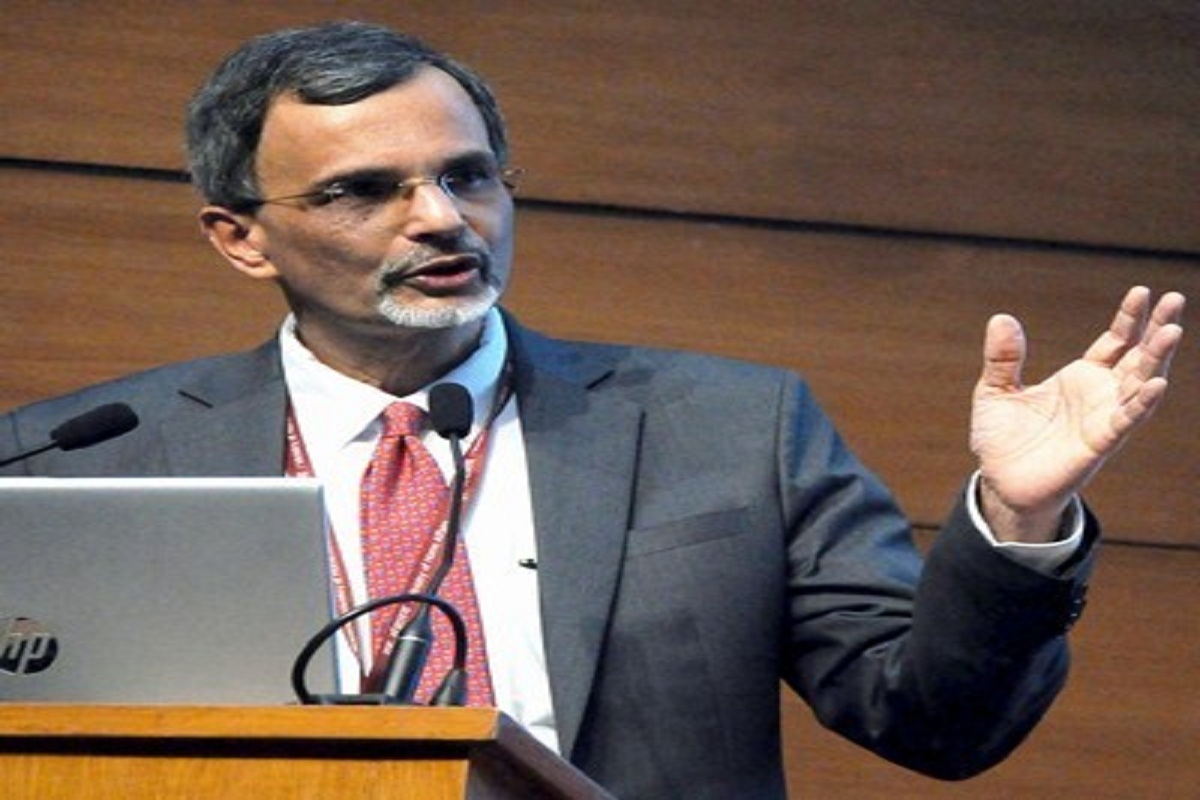The Indian economy is expected to grow in the range of 6.5-7.5 per cent this fiscal, fueled by the strong growth momentum seen in investment and efficiency gains from the rapid pace of digital transformation, this was said by Chief Economic Advisor to the Government of India Dr V Ananth Nageswaran here on Friday.
Speaking at a Plenary Session Mission US$9 Trillion Indian Economy , Dr Nageswaran said the economy is on autopilot, bouncing back impressively after the pandemic, and in all likelihood the FY23 GDP growth rate of 7.2 per cent will be revised upwards in subsequent data revisions.
Advertisement
He highlighted that the government’s sound macro-economic policies, structural reforms like GST, IBC etc., thrust on infrastructure and digitization have ensured that the Indian economy can grow over a long period of time without excessive problems.
He further said, “Till 2030, based on what we have done so far, even assuming that there will be further reforms, I can say that we have the potential to grow continuously between 6.5-7.0 per cent and if we add additional improvements on skills, taking into account market improvements along with other factorsWe can go up to 7.0-7.5 per cent and possibly 8 per cent.”
On capex, he said the private sector is set to achieve strong investment growth following strengthening of corporate balance sheets, strong bank balance sheets, which have improved their ability to lend and support the government’s capex push. In the medium term, investment will continue to be a key driver of growth.
The CEA further said that the increase in investment will also increase manufacturing output, besides there will be factors such as “expansion of public digital platforms and path breaking measures like PM Gatishakti, National Logistics Policy and production linked incentive schemes”.
Dr Nageswaran said that private consumption, which contributes close to 60 per cent of GDP, has surpassed the pre-pandemic trend in the third quarter of the last fiscal, owing to a recovery in rural demand. Going forward, the low inflation outlook on account of lower commodity prices, a good harvest and lower input costs, will have a beneficial effect on boosting consumption spending this fiscal, he added.
He said the states have also performed well on the fiscal front, with their overall fiscal deficit expected to come in at around 3 per cent of GDP in FY23. He further said, increased digital integration through measures such as mandatory electronic tax filing and better e-services provided to taxpayers has brought fiscal benefits to the government.
Responding to an industry member’s query on Tax Collection At Source(TCS), Raman Chopra, Joint Secretary, CBDT, Ministry of Finance mentioned that the Government will soon come out with FAQs to address queries on various aspects of TCS levy.
Sanjeev Puri, President Designate, CII and President & Managing Director, ITC Ltd., in his introductory remarks, highlighted that the Government’s continued reforms mantra is expected to propel the Indian economy to grow at a high CAGR of 7.7 per cent over the next decade too.
Madhav Singhania, Deputy Chairman, CII Northern Region and Joint Managing Director, JK Cements Limited, said that the government’s single-minded focus on implementing reforms and improving ease of doing business and cost will help India leapfrog from a medium to high growth trajectory.
